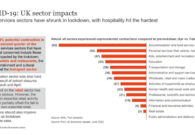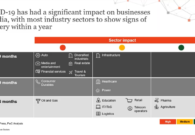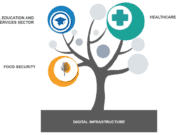Times like these show the importance of digital infrastructure – Part 1
All of us, no doubt, have found ourselves struggling dealing with the impact of COVID19 the past few months. I’ve had days thinking is this really happening? But yes, these are testing times and Governments around the world are grappling with the situation trying to find the best ways to support their citizens and businesses.
One thing that I have strongly focussed on these past few weeks is the importance on Digital infrastructure at times like this. Countries around the world have had to go on complete lockdown forcing Governments, essential services and businesses to think of ways of delivering their products and services digitally. Could this have been possible without robust digital infrastructure which not only includes network infrastructure for internet and broadband services but also data for Internet of things (IoT), machine learning (ML), artificial intelligence (AI) and analytics for forecasting.
Considering the globalised nature of India’s digital economy supporting an internal market and other global markets through its BPO sector, through international service centres responsible for supporting vital infrastructure for countries around the world, having robust digital infrastructure backed by supportive Government policies is imperative. This pandemic is a test for India to look inwards and see how well prepared it is to deal with national emergencies like this and, in the long term, how competitive it is as a Digital Hub for the world.
The Finance Minister (FM), in February 2020, announced a host of initiatives under ‘New Economy’ like the allocation of INR 6,000 crore (£667 million) to Bharat Broadband Network Limited, a central government initiative to provide broadband services at 100 Mbps to around 250,000 gram panchayats (the rural local governments) of the country. This will help strengthen the digital infrastructure enabling the private sector to build data centre parks throughout the country. The budget was prepared with focus on IoT, ML, AI and analytics and featured some good initiatives to aid digital connectivity, further improve the digital ecosystem and capture new tax revenues from e-commerce platforms.
There is an additional INR 8,000 crore (£890 million) allocated to the National Mission on Quantum Technologies, to ensure the country fully leverages artificial intelligence and data. These applications will further boost aero-space engineering, numerical weather prediction, securing communications and financial transactions, cyber security, advanced manufacturing, health, agriculture, education to name a few with focus on creation of high skilled jobs, human resources development, start-ups and entrepreneurship leading to technology lead economic growth. There is huge emphasis on the manufacturing sector with the FM proposing a scheme to encourage manufacturing mobile phones, semiconductor packaging, and electronic equipment. Furthermore, an allocation of INR 3000 crore (£333 million) for skills development to help bridge the technological skills gap in the country.
It is good to see the Government’s commitment towards building strong foundations of a Digital Economy. But is this enough?
Looking beyond towards the Government policies, regulations and support for digital businesses one might see a slightly different picture, particularly for international companies.
In order to achieve the ambitious goals, set out by the Government of India generally but even more so in situations like COVID19, there are some important obstacles that need to be overcome. One massive challenge, at times like this, is cyber security risks stemming from digital penetration.
Which leads us to question how well-prepared is industry, or the Government, to deal with cyber-attacks? To address this and hear some expert views, we are hosting a webinar on ‘Cybercrime – Impact and Business & Government Readiness’ in the next few weeks so please register with us to get future event updates.
Other challenges include:
– The Adjusted Gross Revenue (AGR) issue which is significantly impacting the already struggling telecom sector, forcing companies to shut operations;
– Lack of clarity around Cloud Telephony, particularly for a Hosted Contact Centre (HCC) model storing CDRs on cloud, is hugely impacting international companies who may have to stop a number of services they offer;
– India’s plan to pull out of the WTO moratorium; and last, but by no means the least;
– The much talked about Personal Data Protection (PDP) Bill, which lacks clarity and therefore hasn’t inspired much confidence within companies – Indian or International.
These are all issues that need to be looked at and further improved upon to align with the constantly evolving global scenario.
In part two of this blog, we will examine the PDP Bill in more detail. Keep an eye out for that later this week…

 By Meghna Misra-Elder
By Meghna Misra-Elder 




